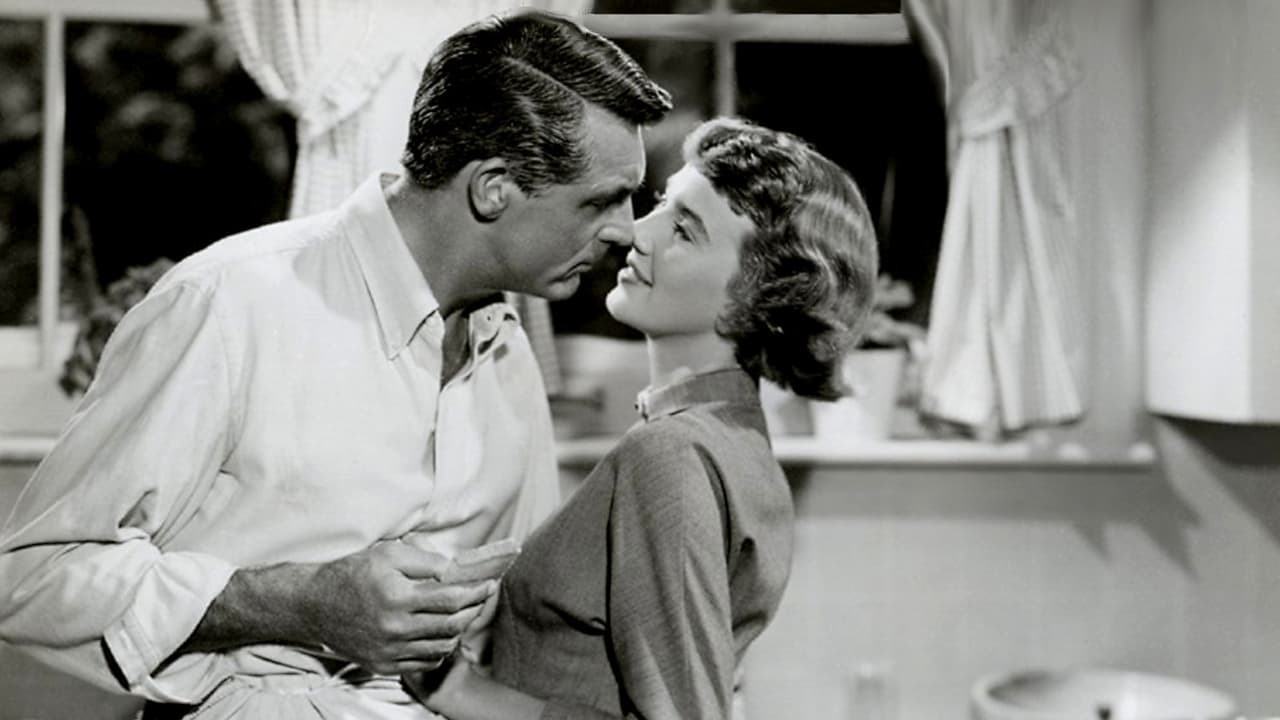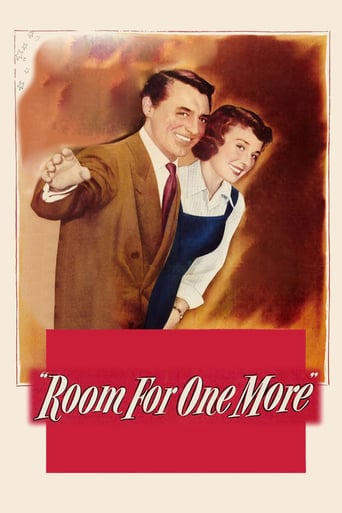

It’s an especially fun movie from a director and cast who are clearly having a good time allowing themselves to let loose.
... View MoreClever, believable, and super fun to watch. It totally has replay value.
... View MoreWhile it doesn't offer any answers, it both thrills and makes you think.
... View MoreEach character in this movie — down to the smallest one — is an individual rather than a type, prone to spontaneous changes of mood and sometimes amusing outbursts of pettiness or ill humor.
... View MoreI did not enjoy this movie particularly. To begin with, it was not the least bit funny. It is slow, boring and very predictable. There are also obvious mistakes, such as the "newborn" kittens being several weeks old in reality (kittens are born blind and entirely helpless). I admit there are a few fine and moving moments though - such as the adopted boy's speech at the end.If you love Cary Grant, it is worth watching this movie only for his sake - because he is at his most virile handsomeness here! I felt that he was wasted in this movie though. It was not good enough for a man with such looks and such star qualities, and he was not the right type for the part either, so he could not lift it. It was like taking the perfect Prince Tamino and dress him up like Papageno and force him to play that part instead...
... View MoreThis is a feel good film, light comedy Norman Taurog, the director specialized in light comedy. When you look at his resume which started in silent films, you see where he worked with Elvis films a lot, but going back, he did a Martin & Lewis film (The Stooge), and even worked with the great Fields in Mrs. Wiggs of the Cabbage Patch and directed the screen version of Tom Sawyer. This type of film is definitely in his wheelhouse.The only thing wrong is it assumes that all kids will respond when treated with respect and kindness. I am sure the book that it is based upon is the story of this. That is the main reason I think it comes off as a little shallow. There are kids who will respond to this, but there are kids who won't. Still, the story is a light Comedy so looking into it too seriously, I shall not.Grant seems terribly out of place in this. He is an overwhelmed father who does everything his wife wants. This might explain why Betsy Drake, his real life wife and him did split 11 years after this movie. After all, eventually a husband who does everything his wife wants gets worn out.While this film addresses the Boy Scouts, it addresses the Polio disease which since it has been cured people forget about. Back when it was made, Polio was still a major problem. The audience in 1952 would understand this better than today's folks who just see that Jimmy John has walking issues. Polio being cured remains one of the biggest accomplishments of modern medicine.A typical ploy of this director in light Comedies is props and Cary Grant gets funny sequences with an inflatable boat. The use of the dog and the way the kids are handled is typical of Norman's Direction too. This does warm the heart.
... View MoreReal-life marrieds Cary Grant and Betsy Drake as a loving couple who adopt needy children. Perhaps trying to erase the stigma--the negative curiosity--from adoption and foster families that was highly prevalent in the early-'50s, screenwriters Jack Rose and Melville Shavelson (working from Anna Perrot Rose's book) go a little nutty providing these particular children with a happy ending. Drake is appropriately warm and buttery, but Grant (uncomfortably referred to as "Poppy" Rose, as if he were in his 70s) has the stern look of concentration that unfortunately never slides into bemusement. His "Poppy" is supposed to be wary of his wife's desire to fill the house with kids, but Grant seems a bit anxious at finding an actual character to portray. He's just relying on externals here, and the slightest sneer of discontent shows through. Story transformed into a TV series some ten years later. ** from ****
... View MoreI have been a grouchy, childless, curmudgeon for the last 30 years. OK, 40. I especially get cranky with movies of easy sentimentality and clumsy "messages", eg., about patriotism or religion or love or whatever.So, I have no idea why I bothered to tune into this movie, (other than it featuring Cary Grant), since the listing told me everything I needed to not watch it: children, family, adoption, disabilities, etc. Once into it, however, I just had to keep watching. It surely has all sorts of sentimentality, and blatant messages about adoption and the Boy Scouts; however the writing is so wonderfully deft, and the performances (including those of the children) so perfectly understated that I was fully engaged and easily able to forgive the more obvious "message moments" such as Jane being the belle of the ball, and Jimmy-John's predictable physical and emotional transformation into an Eagle Scout.Perhaps being a boy scout, and perhaps remembering a sister's first big dance helps to suck you in, but there are eye-stinging moments enough for anyone, such as Jane refusing her (foster)mother's kiss, and the kids in the orphanage playground stopping their noisy play to watch anxiously the visitors looking at them from the balcony.Next Sunday I'm going to watch the golf, dammit.
... View More